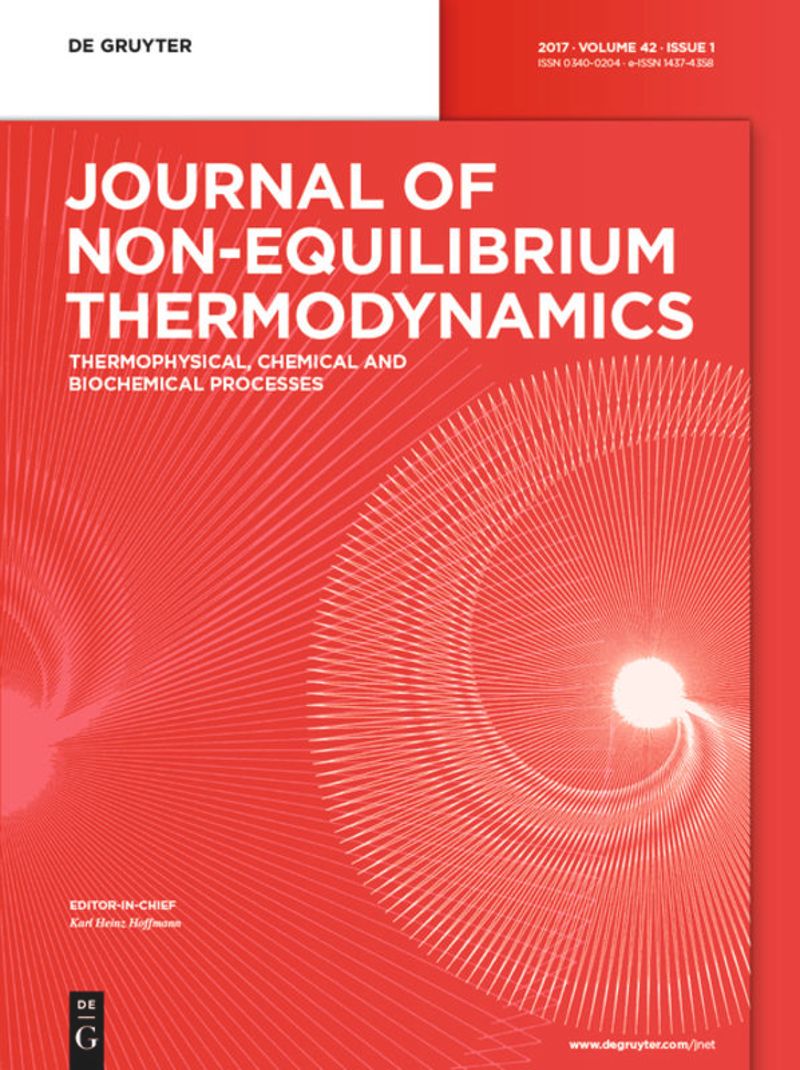Bi2Te3基半导体材料的热电响应特性
IF 4.3
3区 工程技术
Q1 MECHANICS
引用次数: 0
摘要
摘要在实际操作中,热电器件的工作环境温度不断变化,很少保持稳定,而热电器件的电输出特性在很大程度上取决于热电材料。针对这个问题,热电材料(p和n型Bi2Te3)的热电性能{Bi}_{2} }{\mathrm{Te}_{3} })在不同的温差环境下进行测量。T=300–600 KT=300时试样的塞贝克系数、电阻率和热导率{--}600\hspace{0.1667em}\text{K}分别用CTA-4和CLA1000(激光闪光法)测量;分别采用自行搭建的热电性能测试平台、红外热像仪热/电测试系统和电压采集系统,实时采集了不同温差条件下热电材料的热输出响应和电输出响应。实验结果表明,当试样两端温差均匀增大时,输出电信号幅值也均匀增大;当温差稳定时,试样的两端也会产生稳定的电输出信号。在稳定之后,当温度以均匀的速率降低时,电输出信号幅度也均匀地降低。在298~573 K298\sim 573\space{0.1667em}\text{K}的温度范围内,试样两端的温差越大,稳定后的电输出信号幅度越大;反之亦然。热负载的加载速率越大,试样两端的电输出信号幅度的增加速率就越大,所需的稳态平衡时间就越短。本文章由计算机程序翻译,如有差异,请以英文原文为准。
Thermoelectric Response Characteristics of Bi2Te3 Based Semiconductor Materials
Abstract In actual operation, the operating environment temperature of thermoelectric devices are constantly changing and rarely remain stable, and the electrical output characteristics of thermoelectric devices are largely determined by thermoelectric materials. In response to this question, the thermoelectric properties of thermoelectric materials (p and n type Bi 2 Te 3 {\mathrm{Bi}_{2}}{\mathrm{Te}_{3}}) are measured under different temperature difference environments. The Seebeck coefficient, resistivity, and thermal conductivity of the specimens at T = 300 – 600 KT=300\text{--}600\hspace{0.1667em}\text{K} were measured by CTA-4 and CLA1000 (laser flash method), respectively; the thermal and electrical output responses of the thermoelectric materials under different temperature difference conditions were collected in real time by using a self-built thermoelectric performance test platform, thermal/electrical test system with infrared thermal imager, and voltage acquisition system, respectively. The experimental results show that when the temperature difference between the two ends of the specimen increases uniformly, the electrical output signal amplitude also increases uniformly; when the temperature difference is stable, the two ends of the specimen also produce a stable electrical output signal. After stabilization, the electrical output signal amplitude also decreases uniformly when the temperature decreases at a uniform rate. In the temperature range of 298 ∼ 573 K298\sim 573\hspace{0.1667em}\text{K}, the larger the temperature difference between the two ends of the specimen was, the larger the amplitude of the electrical output signal was after stabilization; and vice versa. The greater the loading rate of the thermal load was, the greater the rate of increase of the electrical output signal amplitude at both ends of the specimen was, and the steady-state equilibrium time required was less.
求助全文
通过发布文献求助,成功后即可免费获取论文全文。
去求助
来源期刊
CiteScore
9.10
自引率
18.20%
发文量
31
审稿时长
1 months
期刊介绍:
The Journal of Non-Equilibrium Thermodynamics serves as an international publication organ for new ideas, insights and results on non-equilibrium phenomena in science, engineering and related natural systems. The central aim of the journal is to provide a bridge between science and engineering and to promote scientific exchange on a) newly observed non-equilibrium phenomena, b) analytic or numeric modeling for their interpretation, c) vanguard methods to describe non-equilibrium phenomena.
Contributions should – among others – present novel approaches to analyzing, modeling and optimizing processes of engineering relevance such as transport processes of mass, momentum and energy, separation of fluid phases, reproduction of living cells, or energy conversion. The journal is particularly interested in contributions which add to the basic understanding of non-equilibrium phenomena in science and engineering, with systems of interest ranging from the macro- to the nano-level.
The Journal of Non-Equilibrium Thermodynamics has recently expanded its scope to place new emphasis on theoretical and experimental investigations of non-equilibrium phenomena in thermophysical, chemical, biochemical and abstract model systems of engineering relevance. We are therefore pleased to invite submissions which present newly observed non-equilibrium phenomena, analytic or fuzzy models for their interpretation, or new methods for their description.

 求助内容:
求助内容: 应助结果提醒方式:
应助结果提醒方式:


